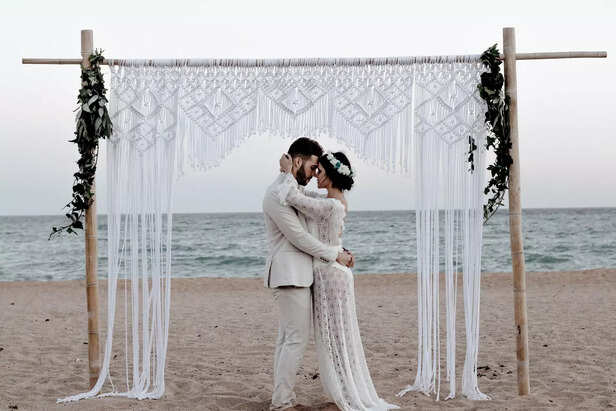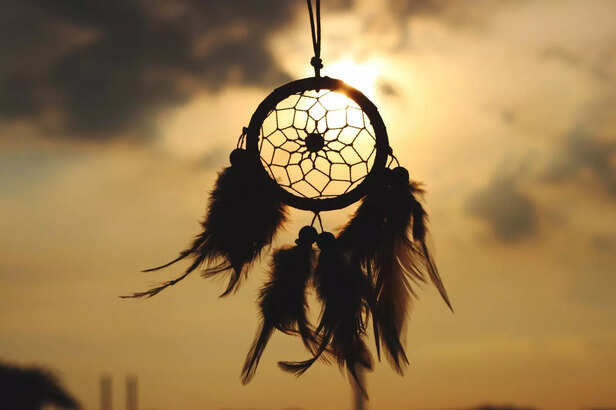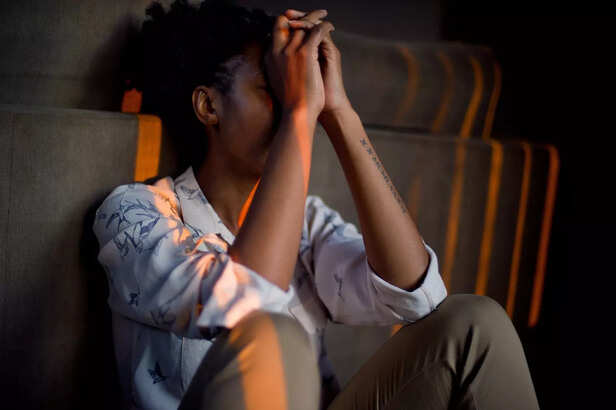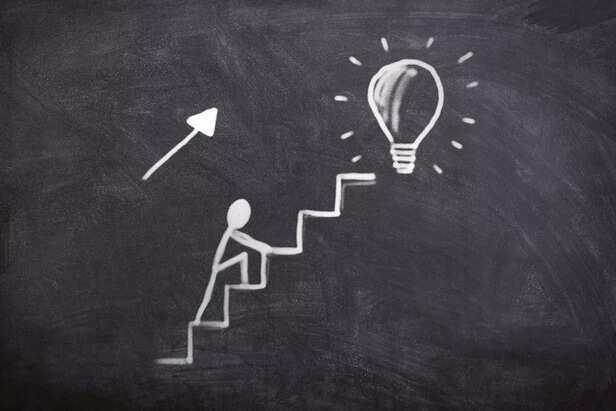Navigating Legal and Social Barriers in LGBTQ+ Marriages
Rinki | Sep 01, 2025, 16:30 IST
LGBTQ+
( Image credit : Pixabay )
This article talks about the challenges LGBTQ+ couples face in marriage. It explains how laws differ across countries, causing problems with rights like adoption, healthcare, and property. Cultural and religious beliefs often bring social rejection, while stigma affects mental health. Despite these barriers, progress is being made through activism and awareness. True equality means both legal recognition and social acceptance, so love and marriage are respected for everyone.
Marriage is not just about two people coming together , it is also about love, respect, and legal rights. For many LGBTQ+ couples (lesbian, gay, bisexual, transgender, queer, and others), getting married is often more difficult than it should be. While some countries allow same-sex marriages and give equal rights, others still do not. This creates legal, emotional, and social struggles. In this article, we will look at the different challenges LGBTQ+ couples face and how societies are slowly changing.
1. Legal Recognition Around the World

The rules about LGBTQ+ marriage are not the same everywhere. Some countries accept same-sex marriages fully and give couples the same rights as everyone else. But in many places, these marriages are either not recognized or even illegal. This makes life complicated if a couple moves from a country that accepts their marriage to a country that does not, suddenly they lose rights connected to their marriage. This affects basic things like inheritance, taxes, and even hospital visits during emergencies.

Marriage is not just about celebrating love , it also brings important legal protections. For many LGBTQ+ couples, being denied marriage rights means losing access to healthcare benefits, trouble when buying property together, and problems adopting children. Even in some countries that allow same-sex marriages, couples face restrictions on adoption or medical treatments like surrogacy. So, the fight for marriage rights is about living equal lives, not just holding a wedding.

Culture and religion play a big role in how marriage is viewed. In many traditions, marriage is seen only as a union between a man and a woman. Because of this, LGBTQ+ couples often face rejection from families, religious groups, and communities. Some are not invited to family gatherings, or they may be pressured to marry someone of the opposite sex. This lack of acceptance can be very painful, making it hard for couples to openly share their happiness.

Even when laws are supportive, society may not always be. LGBTQ+ couples often experience discrimination at work, in schools, or even in their neighborhoods. Some may face rude behavior, bullying, or exclusion. In more hostile places, openly living as an LGBTQ+ couple can feel unsafe. Because of this, many couples hide their relationships, missing out on the simple joy of openly being together. This shows how equality has to be more than just legal, it must come from people’s perspective too.

The emotional challenges of these barriers are very real. When society or family does not accept someone’s relationship, it can cause stress, depression, or anxiety. Constantly fighting for dignity can feel exhausting and lonely. For LGBTQ+ couples, the fear of rejection or discrimination can make them unsure about the future. Having supportive friends, communities, and counselors can make a big difference in helping couples stay strong and hopeful.

Despite all the challenges, change is happening slowly around the world. Many countries and states have legalized same-sex marriage after years of campaigning. Social media and awareness movements are also helping younger generations become more open-minded and accepting. Activists, lawyers, and supportive communities continue to work hard so that LGBTQ+ couples can live with the same respect and freedom as others. Every step forward, whether in law or in society helps break down barriers and brings hope for real equality.
For LGBTQ+ couples, marriage is often about more than love, it is also a fight for equal rights and recognition. While some places have made great progress, others still create obstacles through legal restrictions, cultural rules, and social stigma. True equality will come only when both the law and society respect all forms of love. In the end, marriage should be about two people choosing each other, not about the labels society puts on them. Creating a world where every couple can marry freely is not just a dream it is a step toward fairness, dignity, and inclusion for everyone.
Explore the latest trends and tips in Health & Fitness, Spiritual, Travel, Life Hacks, Trending, Fashion & Beauty, and Relationships at Times Life!
1. Legal Recognition Around the World

Legal
( Image credit : Pixabay )
The rules about LGBTQ+ marriage are not the same everywhere. Some countries accept same-sex marriages fully and give couples the same rights as everyone else. But in many places, these marriages are either not recognized or even illegal. This makes life complicated if a couple moves from a country that accepts their marriage to a country that does not, suddenly they lose rights connected to their marriage. This affects basic things like inheritance, taxes, and even hospital visits during emergencies.
2. Beyond Marriage: Rights and Benefits

Marriage
( Image credit : Pixabay )
Marriage is not just about celebrating love , it also brings important legal protections. For many LGBTQ+ couples, being denied marriage rights means losing access to healthcare benefits, trouble when buying property together, and problems adopting children. Even in some countries that allow same-sex marriages, couples face restrictions on adoption or medical treatments like surrogacy. So, the fight for marriage rights is about living equal lives, not just holding a wedding.
3. Cultural and Religious Beliefs

Beliefs
( Image credit : Pixabay )
Culture and religion play a big role in how marriage is viewed. In many traditions, marriage is seen only as a union between a man and a woman. Because of this, LGBTQ+ couples often face rejection from families, religious groups, and communities. Some are not invited to family gatherings, or they may be pressured to marry someone of the opposite sex. This lack of acceptance can be very painful, making it hard for couples to openly share their happiness.
4. Facing Social Stigma

Social
( Image credit : Pixabay )
Even when laws are supportive, society may not always be. LGBTQ+ couples often experience discrimination at work, in schools, or even in their neighborhoods. Some may face rude behavior, bullying, or exclusion. In more hostile places, openly living as an LGBTQ+ couple can feel unsafe. Because of this, many couples hide their relationships, missing out on the simple joy of openly being together. This shows how equality has to be more than just legal, it must come from people’s perspective too.
5. The Impact on Mental Health

Mental Health
( Image credit : Pixabay )
The emotional challenges of these barriers are very real. When society or family does not accept someone’s relationship, it can cause stress, depression, or anxiety. Constantly fighting for dignity can feel exhausting and lonely. For LGBTQ+ couples, the fear of rejection or discrimination can make them unsure about the future. Having supportive friends, communities, and counselors can make a big difference in helping couples stay strong and hopeful.
6. Change and Progress

Progress
( Image credit : Pixabay )
Despite all the challenges, change is happening slowly around the world. Many countries and states have legalized same-sex marriage after years of campaigning. Social media and awareness movements are also helping younger generations become more open-minded and accepting. Activists, lawyers, and supportive communities continue to work hard so that LGBTQ+ couples can live with the same respect and freedom as others. Every step forward, whether in law or in society helps break down barriers and brings hope for real equality.
In Brief
Explore the latest trends and tips in Health & Fitness, Spiritual, Travel, Life Hacks, Trending, Fashion & Beauty, and Relationships at Times Life!
Frequently Asked Questions (FAQs)
- Are same-sex marriages legal everywhere?
No, many countries still do not legally recognize same-sex marriages. - Why is legal recognition important?
It ensures rights like inheritance, healthcare, and adoption for couples. - How does lack of acceptance affect LGBTQ+ couples?
It can cause stress, mental health issues, and feelings of isolation. - What can help LGBTQ+ couples face these challenges?
Supportive laws, social acceptance, and strong communities make a difference. - Is progress being made for LGBTQ+ marriage equality?
Yes, activism and changing laws are helping increase acceptance worldwide.
